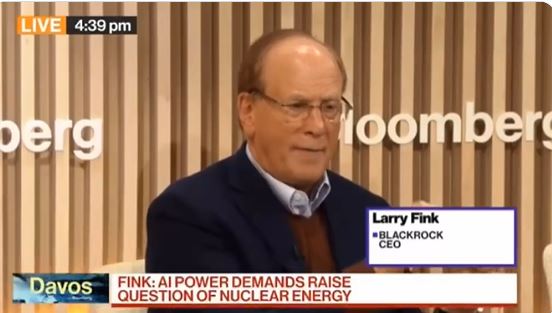Larry Fink, CEO of BlackRock, said that bitcoin (BTC) has the potential to succeed in $700,000. It was throughout his participation within the World Financial Discussion board, held in Davos, Switzerland.
On this framework, Fink outlined bitcoin as a secure haven asset in opposition to fiat foreign money devaluation and political instability. Moreover, he expressed:
“If you’re afraid that your foreign money might be devalued, you may have a world instrument known as BTC. I’m a terrific believer. We might attain $500,000, $600,000 and even $700,000 per BTC.
Larry Fink, CEO de BlackRock.
Likewise, he confused that this state of affairs could be potential if sovereign funds from world wide They’ll allocate solely between 2% and 5% of their sources to the foreign money created by Satoshi Nakamoto.
As CriptoNoticias has reported, Fink modified his opinion and now maintains that BTC is like “digital gold.” Moreover, he believes that probably the most precious digital asset in the marketplace needs to be a part of all buyers’ portfolios as a result of it doubtlessly permits returns and offers monetary management.
For its half, the corporate that manages the world’s largest exchange-traded fund (ETF) argued in one in every of its newest reviews that BTC is a “distinctive diversifying asset” as a result of components that distinguish it from different conventional property.
“BTC’s distinctive traits could make it a hedge in opposition to dangers that conventional property can’t handle, significantly in instances of heightened geopolitical and financial uncertainty,” the report highlights.
It’s because the digital asset has a provide restrict of 21 million BTC and its issuance decreases each 4 years with the halving. That inherent shortage is what sparks the curiosity of buyers and monetary establishments.as a result of in instances of inflation or international tensions it acts as a safeguard of worth.
On this manner, bitcoin is distinguished from fiat cash, which frequently loses worth as a result of fixed issuance and the financial insurance policies of central banks.

